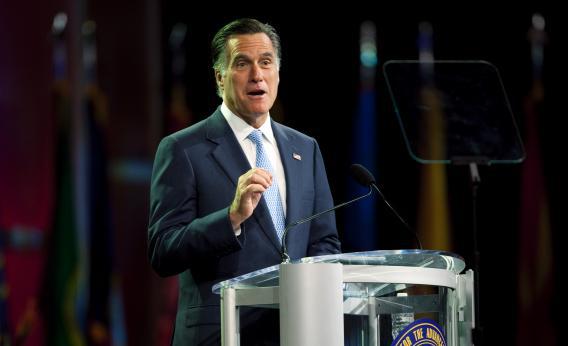Mitt Romney’s been willing to get himself into a lot of weird political corners rather than release his income tax returns. One possible reason why is that he’s trying to hide something illegal, but that strikes me as unlikely. Violating the letter of tax law is normally something that low-income people do by accident, or that middle-class people do foolishly. A guy as rich as Romney is going to have lawyers and accountants ruthlessly exploit every permissable tax-minimization tactic, but the whole point of hiring professionals is to avoid breaking the law.
I think this is just one of these cases in which the real scandal is what’s legal and the real problem for Romney is a huge wedge between elite and mass opinion on tax issues.
Karlyn Bowman’s AEI compilation of public polling is (PDF) as usual useful on this. Among policy elites, all conservatives and many liberals think it makes sense to tax investment income more lightly than labor income in order to encourage capital formation and long-term growth. But few voters agree with this. A January 2012 National Journal poll asked, “The President Barack Obama says he is proposing a 30 percent tax on millionaires because many wealthy Americans pay a 15 percent tax on their investment income, such as capital gains and dividends. Do you think investment income should be taxed at a lower rate than wages or should it be taxed at the same rate as wages?” It turned out that 6 percent think it should be taxed at a higher rate, 56 percent say it should be taxed at the same rate, and just 27 percent of voters agree with the elite conventional wisdom that a lower rate is appropriate.
A Gallup poll showed that 60 percent of Americans and 43 percent of Republicans think households with more than $1 million in income should be required to pay at least 30 percent of their income in taxes. A different CNN poll showed 70 percent of voters and 53 percent of Republicans supporting the Buffett Rule. Anything that further highlights the extent of the shenanigans used under current law will further highlight this super-popular aspect of the president’s agenda.
What’s more, though traditionally even liberal economists have favored light taxation of capital income, there’s something of a backlash against this that Romney personifies quite well. The issue is that though you can certainly construct a model in which you stipulate a sharp distinction between labor income and investment income, in the real world things get fuzzy. A business owner can choose at the margin whether revenue will flow to himself as salary or as profit. A CEO is paid a wage, but paid in large part in the form of equity shares, and in practice is deriving compensation in part from operational control over the enterprise. And through what’s known as the “carried interest loophole” hedge fund and private equity managers have contrived to get a large share of their compensation for management classified for tax purposes as capital gains. Normal people probably don’t care at all whether Romney’s Bain income was in some metaphysical sense really labor income or capital income, but the fact that he and others in his industry are doing this is exactly what a certain swathe of Democratic Party wonks need to point to in order to justify a “Buffett Rule”-style policy.
